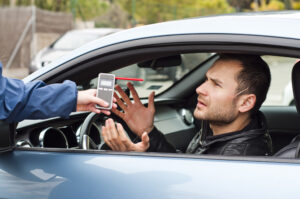
Your blood alcohol concentration (BAC), measures the amount of alcohol present in your body. Do you know what is considered to be a dangerous blood alcohol level? A BAC higher than 0.08 reaching into the double digits. Learn more from our Los Angeles DUI lawyers who help with DUIs and drunk driving defense cases regularly.
Failing to consume alcohol responsibly can lead to intoxication, resulting in impaired judgment and posing risks not only to your own well-being but also to others, especially if you choose to operate a vehicle while under the influence.
Trust the legal guidance of our criminal defense attorneys and discover the different BAC levels, the dangers of excessive drinking, and the legal consequences associated with driving with a high BAC in California.
How Different Amounts of Alcohol Impact Your Blood Alcohol Levels
There’s a reason why California has a “zero tolerance” law for DUI offenders. As individuals consume more alcohol within a given period of time, their BAC increases. Binge drinking can rapidly elevate BAC to dangerously high levels, leading to severe impairments in judgment, loss of physical control, and a heightened risk of alcohol poisoning.
Understanding what happens to your body at different blood alcohol levels is key to understanding a dangerous BAC.
How You Can Be Affected With a BAC Level Below 0.06%
At a BAC below 0.06%, alcohol’s effects may appear minor, leading to relaxation and increased happiness. However, alertness, concentration, and judgment can be compromised, making it unsafe to drive.
What Impact Will a BAC Level Between 0.06% and 0.10% Have?
Between 0.06% and 0.10% BAC, more significant changes occur. Increased extroversion and decreased inhibitions are observed, along with impaired reflexes, reasoning, and vision. Driving with a BAC of 0.08% or higher can lead to DUI charges in California.
California Vehicle Code 23152(b) makes it unlawful for any person to drive a vehicle with a dangerous blood alcohol concentration (BAC) of 0.08% or higher. This law is designed to prevent drunk driving, which is a serious danger to public safety.
How Can a BAC Level Between 0.11% and 0.30% Be Dangerous?
A BAC between 0.11% and 0.30% brings substantial changes. Positive effects diminish, replaced by emotional swings, anger, and depression. Severe motor impairments, delayed reaction times, and memory loss occur. Penalties for drivers with a BAC of 0.15% or higher are more severe.
What Happens if Your BAC Level Is Higher Than 0.30%?
At a BAC of 0.30% or higher, the most dangerous level is reached. Severe depression, loss of bladder control, and impaired heart rate and breathing can be experienced. Immediate medical attention is necessary as this level can be lethal.
The Centers for Disease Control and Prevention (CDC) and the National Institute on Alcohol Abuse and Alcoholism (NIAAA) provide valuable resources and information regarding alcohol-related issues, including the effects of alcohol on the body and the risks associated with impaired judgment and physical control.
Understanding How Alcohol Absorption Impacts BAC Levels
Several factors can influence a person’s alcohol absorption rate and subsequent BAC levels. These factors include:
- How much you’ve had to drink
- What you’ve eaten
- How long it’s been between drinks
- Your weight
- Your biological sex
Alcohol absorption occurs rapidly as it enters the bloodstream. The rate of absorption is influenced by the quantities of alcohol consumed, the alcohol concentration, the presence or absence of food in the stomach, and individual variations in body composition.
Consuming large amounts of alcohol within a shorter period can lead to a faster elevation of BAC. Alcohol’s depressant effects impair judgment, physical control, coordination, and can cause slurred speech and irregular breathing.
Understanding the process of alcohol absorption and its impact on BAC levels is essential for making responsible decisions about alcohol consumption. Always be aware of the potential risks associated with impaired judgment and physical control resulting from elevated BAC levels.
When Is a BAC Test Required?
A BAC test, which measures blood alcohol concentration, may be required by a police officer in various circumstances. Traffic stops, accidents, or when a driver displays signs of impaired judgment or minor impairments can prompt an officer to request a BAC test.
BAC tests serve as a tool for law enforcement to assess an individual’s level of impairment and determine if they are violating alcohol-related laws.
What Are California’s Penalties for a DUI?
If you get stopped by the police for DUI, the BAC you have will determine what kind of penalties you face. However, on a general principle, the California Department of Motor Vehicles will almost always suspend your license.
The California driver handbook has a section on alcohol and drugs that provides several different legal limits depending on the age of the driver and what kind of motor vehicle gets driven while under the influence:
- For adults, .08 BAC is the legal limit.
- For minors, there is a zero-tolerance policy. If you’re under 21, .01 is the legal limit.
- For operators of commercial vehicles, .04 is the legal limit.
Even if you get your license suspended, there are ways you can still drive legally, especially if this is only your first offense. Don’t underestimate the legal penalties involved with DUI charges. It’s in your best interest to get help from a Los Angeles DUI lawyer as soon as possible.
Can I Refuse a BAC Test in California?
In California, drivers give implied consent to submit to a blood, breath, or urine test to determine their BAC when lawfully arrested for driving under the influence. Refusing to take a BAC test after a lawful arrest can have consequences imposed by the California Department of Motor Vehicles, including license suspension.
Refusing a BAC test is generally seen as a violation of implied consent laws, and it is advisable to consult with a legal professional to understand the specific laws, regulations, and potential consequences associated with refusing a BAC test in California.
Turn to an Experienced DUI Lawyer if You’re Facing a DUI Charge
Driving with any alcohol in your system, even if it isn’t at a dangerous blood alcohol level, is never recommended, but people make mistakes. Even if you make a mistake to drink and drive, you are entitled to fair representation in court.
Because officers and prosecutors are aggressive in pursuing DUI charges, mistakes can happen. Your BAC may rise between the time you get pulled over and when you submit to a chemical test, potentially landing you a harsher penalty than you would get otherwise.
Likewise, you are entitled to due process, and a failure to follow the law in pursuit of a DUI conviction can lead to charges getting dismissed.
Get Help for Your DUI Case Today
Even though you can represent yourself in court, it’s much better to get the help of an experienced Los Angeles DUI lawyer. The longer you wait to reach out for legal assistance, the harder it becomes to fight back against your DUI charges. So don’t hesitate to get help as soon as you can.







